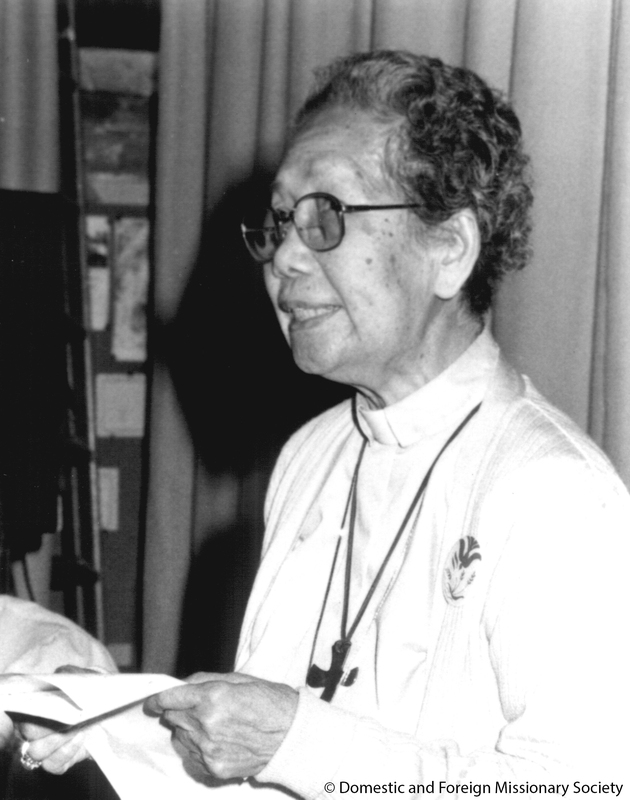Florence Li Tim-Oi
Li Tim-Oi (1907-1992) was born in a small fishing village in Hong Kong where her father was the headmaster of a local school. She was the family’s second daughter, the first surviving, and so named “Tim Oi,” or “another much beloved girl.” As a young adult, she adopted the English name “Florence” after Florence Nightingale, later recalling of her choice, “I so much wanted to be a selfless lady like her. I admired her and the way she had comforted the wounded soldiers...”
Li attended her father’s school until she was fourteen. Due to her family’s poverty, she was not able to continue her education until she was twenty-one, when she attended the Belilios Public School for Girls in Hong Kong. She graduated in 1934, at the age of twenty-seven, and passed her exams with distinction. While she had trained as a teacher, she spent only nine months in that capacity before enrolling at Union Theological College in Guangzhou.
When Guangzhou was bombed in 1937 at the beginning of the Second Sino-Japanese War, Li rushed with her classmates to help, leading the students’ first aid team in rescue efforts often while bombs fell around them. When the seminary was forced to close, she returned to Hong Kong where she provided spiritual support to refugees from occupied areas. At the request of the Anglican Bishop, Ronald Hall, she moved next to Macau, a Portuguese colony, where she was ordained to the deaconate on May 22, 1941.
Although Macau did not experience the suffering of direct bombardment, World War II severely restricted the movement of people and goods. Li not only supported her congregation spiritually, receiving special authorization to celebrate Holy Communion when the visiting priest was unable to attend, but also physically, securing rice where she could for her starving congregation and providing medical care to those too poor to see a doctor. It was as a result of this service that Bishop Hall ordained her as a priest on St. Paul’s Day, January 25, 1944. She was distinguished as the first woman to be an ordained priest in the Anglican Communion, yet she was unable to use the title for several years due to a political firestorm within the church.
During China’s tumultuous years following World War II, Li survived and served. When the church to which she had been assigned, St. Barnabas in Hepu, was closed on January 25, 1951 seven years to the day after her ordination, she pursued further education at Yenching University in Beijing. There, Li studied the Three-Self Movement and Christianity within the context of “new China,” after which she intended to return to Union Theological College to teach. However, in 1958, with the Great Leap Forward, a program of forced agricultural work and rural industrialization that was instituted by the Chinese Communist Party, Li was sent first to the fields and later to a factory. She briefly returned to academic work in 1961, when she was sent to a Communist Party college, but returned to factory work once again during the Cultural Revolution. A dangerous environment in which to openly express one’s faith, she and others opted to express a “silent witness” by “[working] honestly, quietly, faithfully and [showing their] Christianity by example.”
In 1974, Li retired from factory work. Five years later, the churches reopened, but worshipers had to recreate the service “from [their] memories of fourteen years before and from [their] various traditions.” She remained in China for several more years before emigrating to Toronto, Canada, in the early eighties. Li Tim-Oi died on February 26, 1992, at the age of 84.

